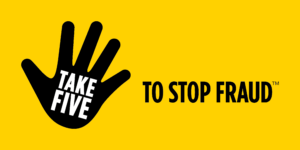Consumer
How to spot if you’ve bought a fake item
 Inspect the packaging and item carefully
Inspect the packaging and item carefully
Look out for the tell-tale signs of flimsy packaging and substandard printing, such as spelling mistakes or grammatical errors. If you’re questioning the packaging, compare your item to an online image from a trusted, high street retailer.
Look for a legitimate safety certification label
All electrical products will have one or more safety certifications on their label if made by a legitimate manufacturer. If the certification mark is present only on the packaging, but not on the product itself, there’s a good chance the product is fake.
Make sure everything that should be there is there
Fake products may not include supplementary materials such as a manual or a product registration card or even all the parts!
Check the plug
If you’ve purchased your product from a UK retailer, look to see whether the appliance has a three-pin UK plug or charger.
Trust your instinct – you’re probably right
If you are still uncertain about your product for any reason, you’re probably right to be wary. Visit the high street to compare your product to those on sale in store; if your item varies in any way do not use it.
Can you spot the fake?


Using our tips, can you tell which of the two chargers above is genuine, and which is fake? Even with all the correct information, it can be incredibly difficult to tell – 3 in 5 people couldn’t tell the difference.
If you suspect you’ve ended up with a fake despite your best efforts, see below for our advice.
What to do if you’ve bought a fake item
Act immediately
If you have proof your item is fake, contact the supplier immediately stating your case and demand an explanation; if there has been a mistake made, now is their chance to clarify.
Demand a refund – but stay civil and calm
You have the legal right to a refund if you’ve bought something that’s fake. Despite this, it can be difficult if you’ve made the purchase from an unknown source so be sure to pay with PayPal or your credit card, as your purchase will likely be insured.
If the seller refuses to give you a refund
If you are not able to settle the dispute yourself, contact the retailer that manages the marketplace (such as Amazon) as they are able to intervene on your behalf. If they are unable to help, contact the Citizens Advice consumer helpline on 03444 111 444 for advice.
Alert other consumers – provide feedback
If you can, leave feedback to warn future shoppers about the situation and potential problems, but do stick to the facts and make sure any claims are accurate.
Don’t ignore it – report it
If you know your product is fake, report it to Trading Standards so that they can take action against the seller; selling fake products is illegal and puts people’s lives at risk.
Report a problem with a trader or product to Trading Standards by contacting Citizen’s Advice, who will pass the details to your local Trading Standards service:
- Report a problem to Citizens Advice online
https://ssl.datamotion.com/form.aspx?co=3438&frm=citacomplainform&to=flare.fromforms - Call the Citizens Advice consumer service (CACS) helpline on 03454 04 05 06 (Monday to Friday, 9am – 5pm)
www.adviceguide.org.uk/england/consumer_e/consumer_protection_for_the_consumer_e/consumer_citizens_advice_consumer_service_e/if_you_need_more_help.htm - Textphone 18001 03454 04 05 06
#EFSW
#Spotthefake
Beware of words qualifying an item’s authenticity
Know where you’re buying from
 Make sure you know where the supplier is based, a ‘co.uk’ URL doesn’t guarantee the website is UK based. If there is no address supplied, or there is just a PO Box, be wary; many fake electrical goods are manufactured overseas, where they will not be safety tested and are produced as quickly and cheaply as possible.
Make sure you know where the supplier is based, a ‘co.uk’ URL doesn’t guarantee the website is UK based. If there is no address supplied, or there is just a PO Box, be wary; many fake electrical goods are manufactured overseas, where they will not be safety tested and are produced as quickly and cheaply as possible.
#EFSW
#Spotthefake
Don’t just take the seller’s word for it – or the reviewer’s!
If the price is (almost) right, it’s probably fake
Online scams
 Online fraud covers everything from online shopping to online banking, but one thing can help prevent both: take the time to install the built-in security measures most browsers and many banks offer. These can help protect you whether the criminals are trying to dupe you with fake pop-ups in your online banking window, sending you ‘scam alert’ messages hiding malware, or faking retailer websites to make you input your financial details.
Online fraud covers everything from online shopping to online banking, but one thing can help prevent both: take the time to install the built-in security measures most browsers and many banks offer. These can help protect you whether the criminals are trying to dupe you with fake pop-ups in your online banking window, sending you ‘scam alert’ messages hiding malware, or faking retailer websites to make you input your financial details.
https://takefive-stopfraud.org.uk/advice/
#TakeFive
Spot The Fake
Are you at risk of being scammed this Christmas?
We know it’s easy to miss those small details that give away a fake, especially in the rush of Christmas shopping and trying to grab a bargain on Black Friday. We’ve found that around nine million UK shoppers have purchased a fake electrical product as a Christmas gift in the past – pretty scary when you think about the fact that fake internal parts in electrical items are at risk of exploding, leaving you open to serious injury or property damage. So, if you buy a fake, at best you’re being swindled but at worst you’re putting your life at risk.
So if you’re making a list ahead of Black Friday, make sure you check it twice!
#EFSW
#Spotthefake
Every year for Electrical Fire Safety Week, the Government’s Fire Kills campaign
works in partnership with Electrical Safety First, the UK charity dedicated to
reducing deaths and injuries caused by electricity in the home.
Electrical Fire Safety Week runs from 21st to 27th November
This year, the Charity is warning about counterfeit and substandard electrical
products. There is always a lot of media interest in this subject in the run up to
Christmas, particularly around “Black Friday” and “Cyber Monday” – when
retailers (online and on the High Street) offer big discounts to drive sales of musthave Christmas gifts.
Email scams
 Criminals don’t just try and contact you by phone and text, they also ‘phish’, contacting you by email too. So always be suspicious of unsolicited emails that are supposedly from your bank or some other trusted organisation because the address can easily be faked. Never automatically click on any links they contain either, not before stopping to check if they seem genuine first. It is safer to type the web address of your bank or other organisation rather than use a link from an email.
Criminals don’t just try and contact you by phone and text, they also ‘phish’, contacting you by email too. So always be suspicious of unsolicited emails that are supposedly from your bank or some other trusted organisation because the address can easily be faked. Never automatically click on any links they contain either, not before stopping to check if they seem genuine first. It is safer to type the web address of your bank or other organisation rather than use a link from an email.
https://takefive-stopfraud.org.uk/advice/
#TakeFive
Think before you buy
 Millions of consumers lose money because they do not know their rights
Millions of consumers lose money because they do not know their rights
Research carried out by Kent County Council showed that a majority of Kent residents are unaware of their consumer rights before they buy; often only finding out when something goes wrong.
The top reported issue in Kent is with the purchase of second-hand cars, with 36% of the county’s population likely to have a problem in this area. A further 26% are at risk of falling victim to rogue traders, also known as doorstep criminals.
The findings raise concerns that a large proportion of residents are at risk of being a victim of consumer crime and are unaware of their basic consumer rights. (more…)

